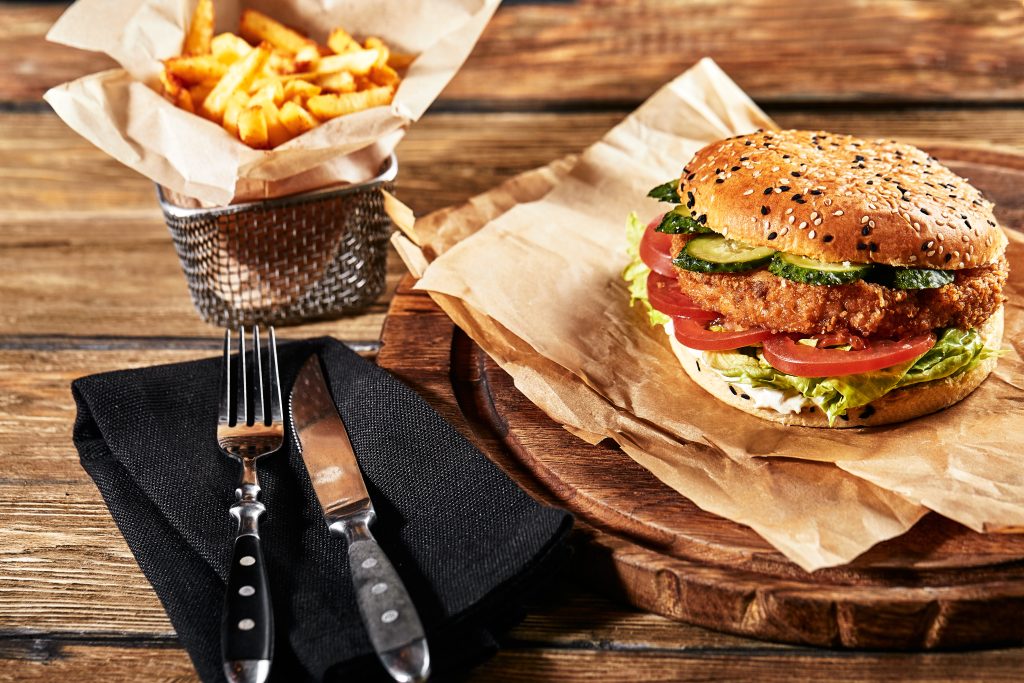In today’s fast-paced world, takeout and food delivery services have become a regular part of our lifestyle. Whether it’s a quick lunch, a weekend treat, or a late-night snack, millions of people rely on takeout meals daily. With this rising demand, restaurants and cafés are under pressure to ensure that the food they serve is not only tasty but also safe and hygienic. This is where food wrapping paper plays an essential role.
High-quality food wrapping paper is more than just a packaging material—it is a protective barrier that keeps food fresh, prevents contamination, and enhances customer trust.
A Hygienic Barrier Against Contamination
The primary function of food wrapping paper is to act as a barrier between food and external contaminants. From the kitchen to the customer’s hands, food goes through several stages of handling and transportation. Without proper wrapping, it can easily come into contact with dust, germs, and pollutants.
Food wrapping paper ensures that meals remain safe by covering them securely. It reduces direct exposure to airborne particles, human contact, and packaging surfaces that might harbor bacteria. This simple step significantly lowers the risk of foodborne illnesses, making wrapping paper a vital hygiene tool in the food industry.
Maintaining Food Freshness
Freshness is directly linked to food safety. When food loses its freshness, it becomes more susceptible to bacterial growth and spoilage. Quality food wrapping paper helps in preserving the natural flavors, aromas, and moisture levels of food.
For instance, grease-resistant wrapping paper is ideal for burgers, sandwiches, and pastries. It prevents excess oil from leaking, keeping the food fresh and appealing while avoiding soggy packaging. By locking in freshness, wrapping paper ensures customers enjoy meals that taste just as good as they would in a restaurant.
Preventing Cross-Contamination
Cross-contamination is one of the biggest threats to food safety. It occurs when harmful bacteria transfer from one surface to another. In takeout packaging, cross-contamination can happen when multiple food items are packed together without proper separation.
Food wrapping paper prevents this by acting as a divider between different items. For example, wrapping a sandwich individually before placing it in a takeaway box ensures that sauces, oils, and seasonings don’t spread to other foods. This not only maintains hygiene but also preserves the unique taste of each dish.
Heat Retention and Safe Transportation
Another way food wrapping paper supports hygiene is by maintaining the right temperature during delivery. Certain types of wrapping paper are designed to retain heat, keeping meals warm until they reach the customer. Proper temperature control reduces the risk of bacteria multiplying in lukewarm food, which is one of the main causes of foodborne illnesses.
Additionally, wrapping paper provides structural support during transportation. It prevents food from spilling or being exposed to unclean surfaces inside delivery bags or vehicles.
Grease and Moisture Resistance
One of the most important features of high-quality food wrapping paper is its resistance to grease and moisture. Greasy packaging not only looks unappealing but can also become a breeding ground for bacteria. With the right wrapping paper, oils and moisture are absorbed in a controlled way, ensuring the outer packaging remains clean and hygienic.
For bakeries and cafés, using grease-resistant paper also improves customer satisfaction because customers can enjoy their food without messy leaks.
Eco-Friendly Hygiene Solutions
Sustainability and hygiene go hand in hand. Many food businesses are now opting for eco-friendly wrapping paper made from biodegradable or recyclable materials. These papers are not only safe for the environment but also free from harmful chemicals and toxins that could affect food safety.
Using eco-friendly wrapping paper shows customers that a brand cares about both their health and the planet. It builds trust and encourages repeat purchases while keeping food protected in a hygienic way.
Brand Trust and Professionalism
Customers today are highly conscious of hygiene, especially after the global pandemic. When they see their food carefully wrapped in clean, high-quality paper, they immediately feel more confident about the safety of their meal.
Food wrapping paper doesn’t just serve a practical purpose; it also communicates professionalism. For restaurants, cafés, and bakeries, investing in proper wrapping paper shows that they prioritize customer health and quality service. This builds stronger brand loyalty and sets businesses apart from competitors.
Regulatory Compliance
Food safety regulations around the world emphasize proper packaging to minimize contamination risks. Businesses that use high-grade food wrapping paper are more likely to meet these regulatory standards. Compliance not only protects consumers but also shields businesses from legal issues and reputational damage.
For example, food-grade wrapping papers are designed to withstand direct contact with food without releasing harmful substances. This makes them a safe and compliant choice for all types of takeout packaging.
The Role of the deli paper in Food Wrapping Solutions
When it comes to sourcing high-quality food wrapping paper, businesses need reliable partners who understand both hygiene standards and market demands. Companies like the deli paper provide food wrapping solutions that balance safety, freshness, and sustainability. By offering customizable and eco-friendly wrapping paper, they help food businesses maintain hygiene while also enhancing their branding efforts.
Conclusion
The importance of food wrapping paper in ensuring hygiene and food safety in takeout packaging cannot be overstated. From preventing contamination and preserving freshness to reducing cross-contamination and supporting eco-friendly practices, wrapping paper has become an essential tool for modern food businesses.
For restaurants, cafés, and bakeries, investing in the right food wrapping paper not only safeguards customers but also builds trust and strengthens brand identity. By choosing high-quality solutions from trusted providers like the deli paper, businesses can deliver safe, hygienic, and delicious meals that keep customers coming back.






